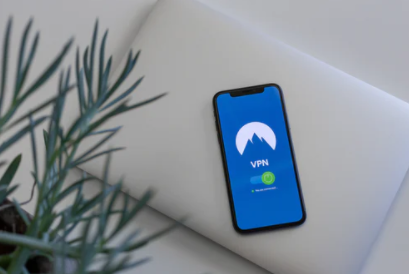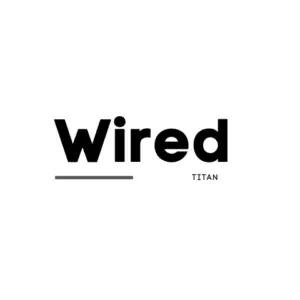Does NordVPN Log DNS Request?
NordVPN is a popular VPN service today.
But in a world that is technologically changing at such a rapid state, how secure is your data and private information?
It’s completely understandable to be wary of NordVPN’s stance on the storage of users’ data, particularly DNS requests.
NordVPN does not log DNS requests. Unlike many of the VPN providers, NordVPN has a zero-logging policy which makes it impossible to track, store, or share personal information of users like DNS requests.
Still don’t believe it? That’s quite understandable given the enormity of this topic. Fear not, however.
This article will endeavor to demystify some of the major concerns surrounding DNS and explain in detail why NordVPN doesn’t log users’ data. So definitely read on to learn more!
Does Nordvpn Log DNS Request?
You’ve probably come across numerous VPN providers that claim to have stringent no-logs policies. But can one trust these providers? A strict no-logs policy is usually a key selling point for most of these providers.
The truth of the matter however, is that there is usually little to no evidence of this. So it’s quite understandable for people to be hesitant to take these VPN providers at their word.
Although it would be much simpler and easier if VPN providers kept no logs at all, most do keep some records.
Examples of these include logs of visited websites, time stamps, bandwidth used, and personal information among others. They can be connection logs, IP address logs, or traffic logs.
Providers may choose to keep this information to use for business and advertisement purposes.
Others may sell this information to third parties such as the government. This has always been a bone of contention for most users.
You see, what this means is that the users of these VPN services may not get the privacy they require. One thing worth looking over in the privacy policy of VPN providers is their logging policies.
It’s always important to know the exact information that will be recorded and what it will be used for before choosing a provider.
That said and done, unlike some of these providers, NordVPN does not keep any type of logs, including DNS requests. It doesn’t collect, store, share or track personal information.
This is because the company aims at ensuring that its clients’ online activities and private information cannot be viewed by anyone. Simply put there are no logs stored by NordVPN and as such this particular provider cannot share something that does not exist.
Their no logs policy is one of their major selling points and is also a pre-eminent feature which they usually highlight in their Terms of Service.
Unlike other VPN providers that also do this, NordVPN has unbiased and substantiated proof of their claims. Here’s why.
In the most shocking and unprecedented move, the company hired an independent auditor from a prominent auditing firm to conduct a full and in-depth audit to verify their no logs policy.
The firm was PricewaterhouseCoopers AG, Zurich, Switzerland.
This was the first industry audit of their no logging claims.
The firm had complete access to the company’s servers and databases. It could also interview NordVPN’s employees, observe company operations, and inspect configurations and any other relevant information.
The result? NordVPN was confirmed to be fully compliant with its no-log policy and privacy policies.
The auditing firm was sufficiently satisfied that the VPN provider does not store DNS requests, personal IP addresses, internet activity information, or any other logs of its subscribers.
The report of this audit is available for anyone to view on NordVPN’s website.
One more thing that backs NordVPN’s no log policy is the fact that the company is located away from the jurisdiction of the EU and the US.
They have no legal obligation to collect any data from users even if they are asked for it.

NordVPN is registered in Panama.
Panama is a country that has no data retention laws.
NordVPN is registered in Panama. Panama is a country that has no data retention laws. This means that NordVPN is not legally required to collect and store any type of log data.
So with all these in mind, it’s easy to see why NordVPN stands out from all other VPN providers. They do not just use a no-logs policy as a marketing front.
They have a foolproof zero logs policy that has been proven to be true. NordVPN is therefore a trusted VPN provider that is guaranteed to keep subscribers’ information safe.
How does DNS work over VPN?
Domain Name Systems (DNS) resolve domain names of websites into IP addresses that can be accessed by your device.
VPNs on the other hand create a private network from public internet connections. This masks your IP address so that it becomes impossible to trace your online actions.
So how exactly does DNS work over VPN?
When you try to access a certain website, you are connected to a VPN. All this online traffic is essentially routed through the VPN network through an encrypted tunnel to the DNS servers.
The VPN server then requests the DNS server to access your requested information.

The DNS server then accesses the website you requested and returns the IP address of that website.
The VPN server then opens the connection request to that website and encrypts the data. Finally, you are allowed access to the website.
The VPN tunnel is usually strong and as such your confidential information is secure and third parties cannot spy on or tamper with it.
Does NordVPN have DNS?
The common issue with most VPN providers is that they advertise certain forms of DNS which they claim to be leakproof and secure.
The truth, however, is that very few of them go the extra mile to encrypt DNS servers and DNS requests.
Some of these even use third-party DNS providers! This means that your web history is visible to other people apart from yourself and your VPN providers.

The overall effect of all this is that these providers route their users’ DNS requests through unsecured channels.
On the other hand, VPN providers who use their DNS servers keep all requests in-house. These requests remain encrypted when they are sent to and from their DNS servers.
That aside, the answer to the above question is yes! NordVPN does have DNS. A while back, NordVPN launched its DNS servers which are still operational to date.
These servers are designed to prevent leaks of IP addresses and other personal information that would otherwise not be preventable with just an active VPN connection.
The DNS servers make sure no third parties can gather a user’s data.
When a user connects to NordVPN, their device only utilizes the company’s DNS servers. All of the user’s DNS queries go through an encrypted tunnel.
They are then resolved on the same VPN servers that the user is connected to. This ensures all DNS requests of the user are safe.
NordVPN provides a DNS option for users and what’s even better is that it doesn’t store any request logs.
Some advantages of using NordVPN’s private DNS include:
· Encryption of DNS requests in the VPN tunnel.
· Third parties have no access to users’ web history.
· Spoofing attacks and DNS hijacking is impossible.
· DNS mixing and randomization are possible which provides additional security.
The fact that NordVPN has its DNS servers sets it aside from other providers because with it the security of a person’s information is guaranteed.
DNS Leaks and How NordVPN Prevents Them
DNS leaks are security flaws that make it possible for queries to travel to default DNS servers of your Internet Service Provider (ISP). This may happen if you:
· Run Windows 8 or later when the “Smart Multi-Homed Name Resolution” feature is enabled.
· Reset your system preferences.
· Manually set up a VPN.
· Use a VPN provider that doesn’t own its DNS servers or offer sufficient protection from leaks.
The implications of DNS leaks? If your queries and online traffic travel through the usual unencrypted route, third parties can access it. This includes your ISP and DNS providers.
They are then able to see what sites you visit and what you do on those sites, services you use, and much more. What’s even worse is that you won’t know about it unless you perform special DNS leak tests.
NordVPN has DNS leak protection. When connected to NordVPN, your device accesses only NordVPN’s servers.
Your DNS queries go through an encrypted tunnel and are resolved on the servers you are connected to. Therefore, you won’t have to worry about your private information being intercepted by third parties.
NordVPN is a trusted VPN service provider that has strong security measures in place to ensure that your browsing activities are anonymous.
It also has strong encryption services that guarantee the safety of your data. It has lots of other security features which you can find on their website.
But the bottom line is that NordVPN has a proven no logs policy which ensures that your DNS requests, as well as other relevant data, are not stored. So if you were wondering whether you can trust NordVPN, I guess you have your answer to that now!

